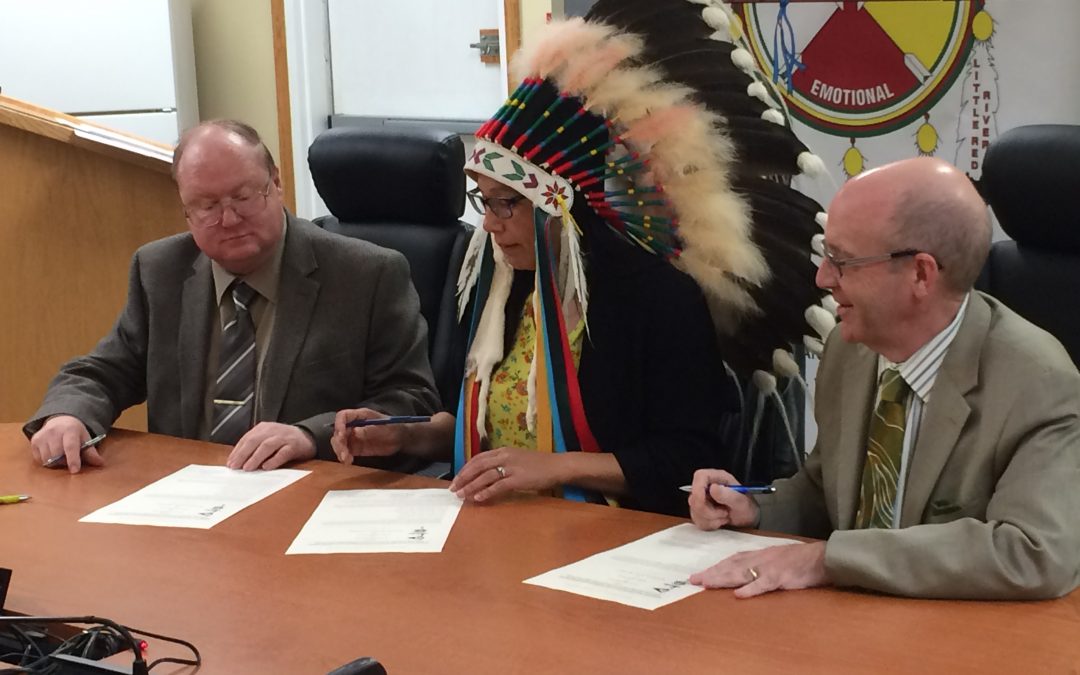A historic agreement between the Lac La Ronge Indian Band and surrounding health services was signed Friday afternoon.
The band and health services in the region signed a Truth and Reconciliation Memorandum of Understanding to have all sides work together to address health issues originating from residential schools.
The joint partners in the agreement will be Mamawetan Churchill River Regional Authority (MCHRA) and Northern Medical Services (NMS).
The signing ceremony comes in response to the federal Truth and Reconciliation Commission’s calls to action.
Cathy Wheaton, health coordinator with the band, says they hope the agreement will raise awareness of the generational impacts of residential schools.
“It’s been an experience that the entire band has gone through, so it is a significant factor in health today,” says Wheaton.
The historic agreement was signed by Lac La Ronge Indian Band Chief Tammy Cook-Searson, Dr. Preston Smith, Dean of the College of Medicine at the University of Saskatchewan and Ron Woytowich, MCRRHA board chair.
Preston Smith, the University of Saskatchewan’s Dean of Medicine, says the TRC had plenty to say about the health field in its final recommendations.
“There are eight recommendations that pertain to health and what we can do as a university — in this case, in terms of training doctors and other health professionals — but also because, in this situation, Northern Medical Services, which recruits doctors for the north, is also part of the College of Medicine,” he says.
Band chief Tammy Cook-Searson says the MOU has already identified ways to address the health-related recommendations from the TRC’s final report.
“Our joint partnership will respond to these eight recommendations in the following way — so Recommendation No. 18 from the Truth and Reconciliation Commission is the partners acknowledge that the current state of La Ronge band health is a direct result of Canadian policies, including residential schools,” she says.
Wheaton says the band initially proposed this agreement in January and representatives from the different health services were very eager to sign on.
“They were very receptive and they also felt it was a very important issue to recognize and collaborate together on.”
“The residential schools have had a tremendous impact on the health of individuals because of the many negative experiences, so it’s something we really need to recognize and understand.”
Wheaton says the MOU will increase the awareness of this issue.
